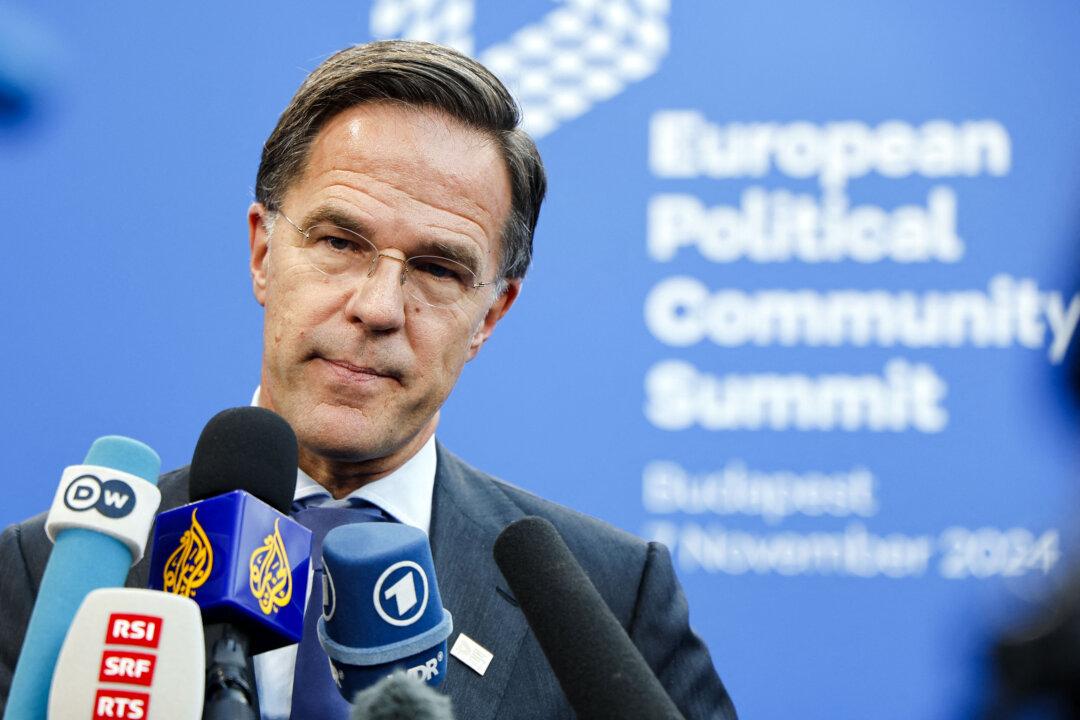NATO Secretary-General Mark Rutte said on Nov. 7 that North Korea, China, and Iran are working together with Russia against Ukraine, posing threats to Europe and the United States.
“China, North Korea, Russia, and, of course, Iran—this is more and more a threat not only to the European part of NATO but also to the United States, because Russia is delivering the latest technology into North Korea in return for North Korean help with the war against Ukraine,” Rutte told reporters before meeting with European leaders in Budapest, Hungary.




